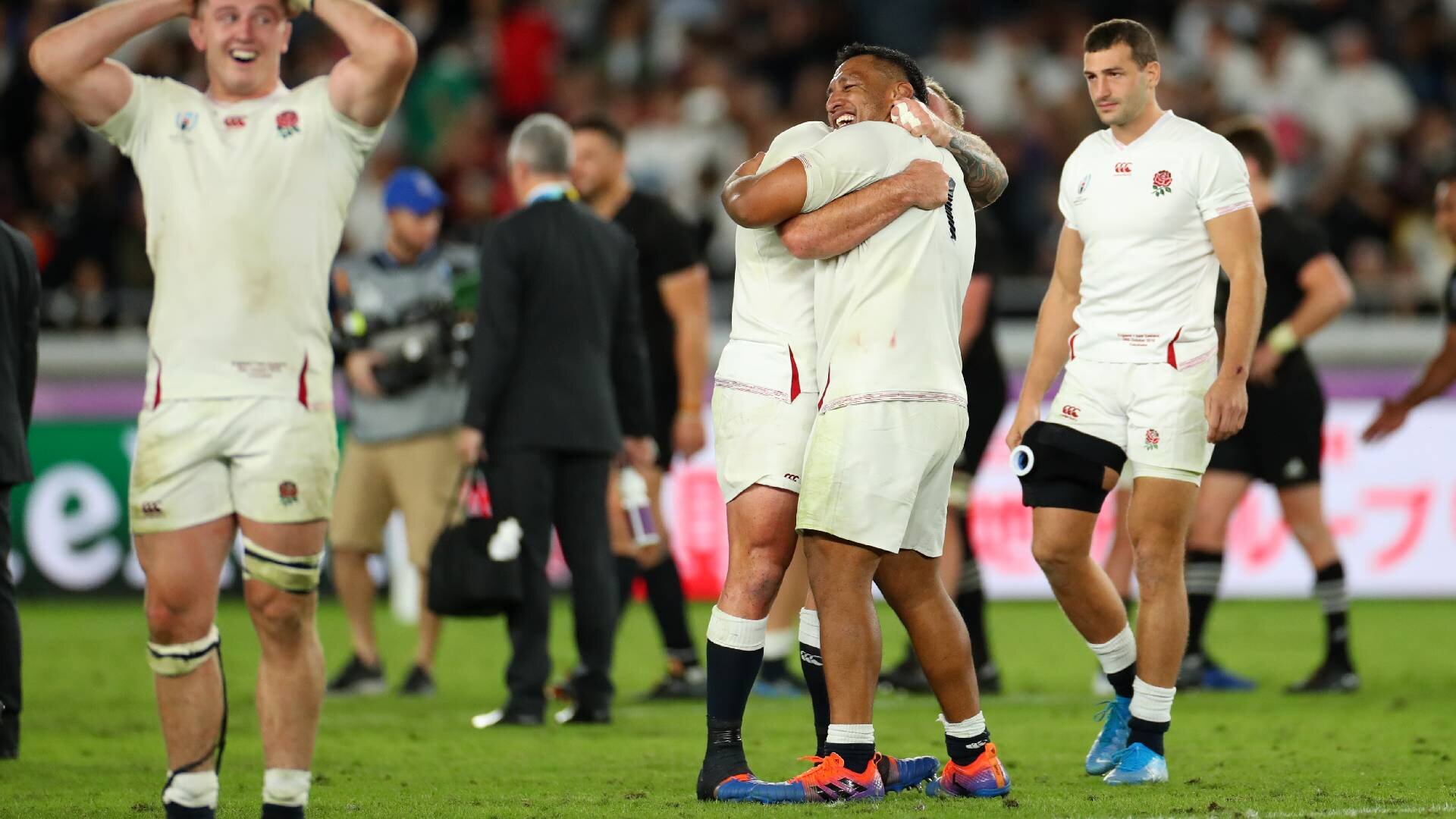Eddie Jones: How England's reaction to All Blacks victory proved to be costly in World Cup final

England head coach Eddie Jones believes his side received too much praise for their World Cup semi-final victory over the All Blacks, which ultimately cost them when it came to playing in the final a week later.
The English stunned the rugby world with a stunning 19-7 win over the reigning champion, with their defensive fortitude and tactical nous enough to outshine the Kiwis and book their spot in the World Cup final.
However, Jones’ side couldn’t back that impressive performance up seven days later, as they fell to a formidable Springboks outfit 32-12 in Yokohama, the second-heaviest defeat in World Cup final history.
Continue reading below…
In the lead-up to the match, the side were being compared to Sir Clive Woodward’s 2003 World Cup-winning side by British media, despite Jones’ team having not yet lifted the Webb Ellis Cup.
Writing in his new book My Life and Rugby, Jones spoke about his squad’s mindset leading into the Springboks clash, saying that he got it wrong in keeping his side’s feet on the ground after their victory over the All Blacks.
“There’s also a psychological challenge after the kind of big win we achieved against the All Blacks,” Jones wrote, according to The Times.
Steve Hansen stayed on past his expiry date says former NZR chief. https://t.co/AcQQKjdqKU
— RugbyPass (@RugbyPass) November 17, 2019
“While we did play well, I thought the analysis was a bit over the top. Everyone was slapping us on the back, saying how fantastic we were, how it was the best ever performance by an England team and the best ever win at a World Cup.
“The praise was everywhere. The challenge is to bring the players back to reality. It changes the structure and narrative of the week.”
Jones also revealed that he made a mistake selection-wise for the final, saying he should have picked loosehead prop Joe Marler ahead of the New Zealand-born Mako Vunipola.
“I had been right against Australia and New Zealand but, as it turned out, in the biggest game of our four-year cycle, I got it badly wrong. Hindsight is a wonderful teacher,” he said.
Jones’ book is released on November 21.
In other news:
















